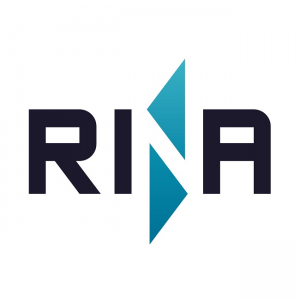Organiser: RINA
Thursday, 21 July 2022 | 9:00h – 13:00h
Room Seminar 1
Format: Presentation and discussion
The purpose of this workshop is to provide an interactive space, where researchers, practitioners and private sector will share their experience and challenges in mainstreaming e-mobility. It aims at presenting the challenges and opportunities for electric transportation in different contexts. During the workshop several speakers will present the outcomes of different European projects (related with e-mobility) in which they are involved (STURDUST, eSMART, RESPONSE, mySMARTLife, INCIT-EV, POCITYF), tackling the problem from different angles. RINA-C,who organizes this session, is involved in the RESPONSE project and aimsat creating synergies with ongoing European projectsand learn best practices in the e-mobility sector that can be useful for the RESPONSE project itself.
Programme:
The presentations and discussion will be articulated as follows:
Sebastian La Fleur (TNO)
“An analysis on charging public transport buses using PV panels by utilizing energy flexibility”
- Public transport buses are increasingly being electrified to increase their sustainability. This is also the case in the Dutch city of Alkmaar, one of the light house cities in the POCITYF H2020 project. There, Connexxion is managing the electrical bus fleet and its charging infrastructure. To enhance the sustainability even further, the energy needed for charging will be matched in real time with a nearby PV installation to use as much renewable energy as possible. TNO analyzed the available charging flexibility with its Reflex tool and will present simulation results for matching it with PV production.
Maurizio Arnone (LINKS)
“A tool to support cities in user-centric planning of the charging infrastructure network”
- The speech will address the importance of planning the electric mobility charging infrastructure network taking into consideration both mobility needs and energy constraints. To this aim, LINKS Foundation is developing, in collaboration with other partners within the H2020 INCIT-EV project, a Decision Support System (DSS) to help decision makers to simulate different scenarios regarding sizing and sitting of public charging points (e.g. location, power, technology) and assess their impacts bots on the users’ experience and the electric grid. The tool, validated in 4 EU cities, is based upon official data, always up-to-date and publicly available, to be transferable to all EU cities, even where no specific mobility data are available.
Marie Sevenet (EIFER)
“Optimal location of charging point within a city”
- The proposed communication is framed by RESPONSE project and aims to present the developing approach to assess different strategies on positioning on-street electrical charging infrastructure at the scale of a district. This approach is a part of a simulation tool which is based on spatial analysis methods. The location of charging infrastructure is mainly based on activities distribution (residential, services, economic activities…) and parking slots. Consequently, charging infrastructure deployment planning tool considers geographical information such as housing & working places, traffic and grid capacity. This approach is tested on a Dijon Metropolis.
Marko Paakkinen (VTT)
“Sharing of charging infrastructure as means to speed up electric commercial vehicle growth”:
- (i) Need for electric commercial vehicle charging infrastructure is growing;
- (ii) Market driven infrastructure is not yet ready to take off, due to low volumes;
- (iii) Sharing of existing infrastructure could provide a means to build the initial infrastructure to support growth;
- (iv) Examples from Helsinki (H2020 mySMARTLife project)
Cristina Cavicchioli (RSE)
“Tools and strategies for e-mobility development in achallenging territory”
- The European transnational research project e-SMART aims to provide a framework to facilitate, in the reference territory of the Alpine Space, the cooperation between economic, social, and environmental key players, such as public administrations (PAs), local business sectors, policy makers, and research centers.
Alyona Zubaryeva (Eurac Research), Marco Cattani (Trentino Mobilità́)
“Last-mile logistics with electric vehicles, innovative business models and opportunities, Trento case study”:
- This presentation outlines the setup of an urban distribution centre (UDC) to manage last mile deliveries directed towards historic centre using only electric and sustainable vehicles within Smart City Project Stardust. Analysis carried out is focused on researching a business model for UDC management suited to urban context of Trento.
Paola Astegiano (RINA-C)
“Evaluation of ASSUREDoutputs and definition of business cases”:
- ASSURED has received funding from the European Union’s Horizon 2020 research and innovation programme in order to boost the electrification of urban commercial vehicles and their integration with high power fast charging infrastructure, evaluating several infrastructures in different cities across Europe.In this context, RINA-C was responsiblefor the evaluation of ASSURED outputs based on defined Key Performance Indicators (KPIs) such as cost, energy efficiency, impact on the grid (quality, stability, safety), battery ageing, noise & the environmental and health impact of the different use cases.Finally, RINA-C wasalso in charge of the definition of the 3 Business Cases, including impact assessment from information generated from the demonstrators.
Moderators
- Paola Astegiano (RINA-C) – Project Manager Innovation for Energy&Mobility
- Federica Fuligni (RINA-C) – Business DeveloperInnovation for Energy&Mobility
Keynote speakers
Sebastian La Fleur (TNO), Maurizio Arnone (LINKS), Marie Sevenet (EIFER), Marko Paakkinen (VTT), Cristina Cavicchioli (RSE), Alyona Zubaryeva (EURAC Researc), Marco Cattani (Trentino Mobilità́), Paola Astegiano (RINA-C)

